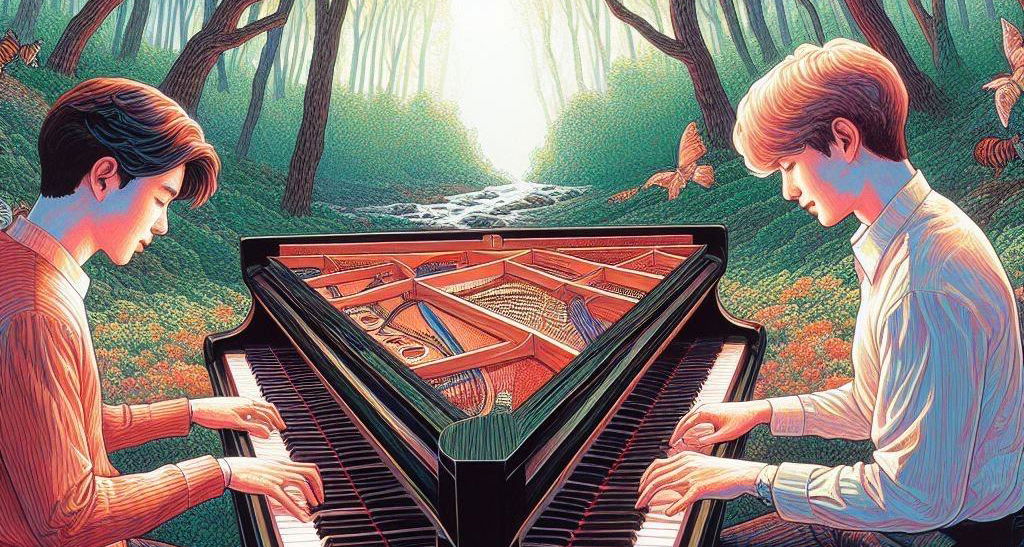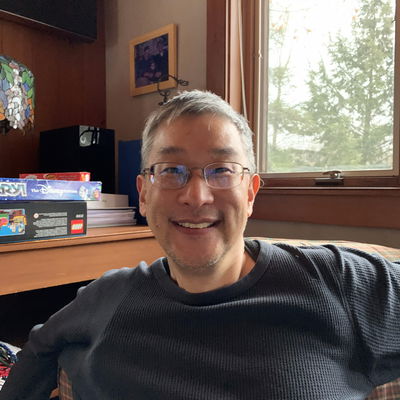
2 Pianists, 1 Passion: Yuval Medina & Theodore Chaffman Collaboration
UWS
Sat, November 18, 2023, at 7:00 PM,
EST

- Bring your own drinks
-
Wheelchair access
- Wheelchair Accessible
-
- Kid-friendly event
This is a groupmuse
A live concert in a living room, backyard, or another intimate space. They're casual and friendly, hosted by community members.
Host
Hi there! I'm excited to present this unique collaboration of two passionate pianists. See below for details. Guest arrival begins at 7pm with music to begin around 7:30pm. I'll provide light snacks and non-alcoholic drinks; feel free to BYOB. Please note I'd like to us to take off our shoes when entering the apartment.
What's the music?
Join us at David's for an evocative musical journey. Tonight, we celebrate the unique bond and journey of part-time Juilliard students, Yuval Medina and Theodore Chaffman.
Theodore initiates our musical tale with Scriabin's Sonata No. 4, delving into the composer's mystical realm, followed by Debussy's shimmering L'isle Joyeuse. After a pause, Yuval introduces us to Kapustin's jazzy Concert Etude No. 1 and the evocative tones of Rachmaninoff's Piano Sonata No. 2.
Post intermission, Yuval and Theodore unite for Kapustin's "Sinfonietta, Op. 49" for piano four-hands, a testament to their shared passion and respect.
Program:
Part 1: Theodore Chaffman
Under the Stars: Alexander Scriabin - Piano Sonata No. 4
Island of Joy: Claude Debussy - L'isle Joyeuse
Part 2: Yuval Medina
Rhythm and Jazz: Nikolai Kapustin - Concert Etude No. 1
Emotional Odyssey: Sergei Rachmaninoff - Piano Sonata No. 2
Brief Intermission
Part 3: Four Hands, One Voice - Yuval & Theodore Piano Duo
The Grand Spectacle: Nikolai Kapustin - Sinfonietta, Op. 49
Where does this music come from?
Tonight's program traverses the rich tapestry of musical traditions from the Late Romantic to the Contemporary periods, drawing lines of connection between diverse styles and philosophies that have evolved over the past century.
Alexander Scriabin's "Piano Sonata No. 4," a product of the early 20th century, bridges the deeply emotional narratives of the Romantic era with the nascent avant-garde inclinations of the 20th century. Imbued with Scriabin's mystical beliefs, it represents a quest to transcend conventional tonality, forging new paths in emotional expression.
Claude Debussy's "L'isle Joyeuse" captures the essence of the Impressionist movement. Composed during the turn of the 20th century, Debussy sought to render mood and ambiance through his innovative harmonies and delicate tonal brushstrokes, much like the visual artists of his time, aiming to evoke rather than explicitly depict.
The rhythmic heartbeat and the improvisational spirit of jazz come alive in Nikolai Kapustin's "Concert Etude No. 1." Jazz, originating from the late 19th to early 20th centuries, evolved as a unique musical form characterized by its distinct rhythms and freedom in improvisation. Kapustin, writing in the late 20th century, seamlessly integrates these jazz elements with classical traditions, crafting a narrative that bridges epochs.
Sergei Rachmaninoff's "Piano Sonata No. 2," especially in Horowitz’s version, stands as a beacon of Romantic expression. Composed and revised during the early 20th century, it encapsulates the era's intense emotionality, lush melodies, and the audacious virtuosity that defined the zenith of Romanticism.
Concluding our journey is Kapustin's "Sinfonietta, Op. 49" for four hands. A virtuoso duo piece from the 1980s, it showcases Kapustin's flair in synthesizing the expressive dynamism of big band jazz with the meticulous structure of classical composition. The interplay between two pianists on a single instrument elevates the work, creating a dialogue not just between the performers but between historical traditions, all unfolding on one shared platform.
Location
Exact address sent to approved attendees via email.
This is a groupmuse
A live concert in a living room, backyard, or another intimate space. They're casual and friendly, hosted by community members.
Host
Attendees

























 Continue with Facebook
Continue with Facebook
 Continue with Google
Continue with Google
 Continue with Apple
Continue with Apple
Comments (1)
Comment sections are only for participants.